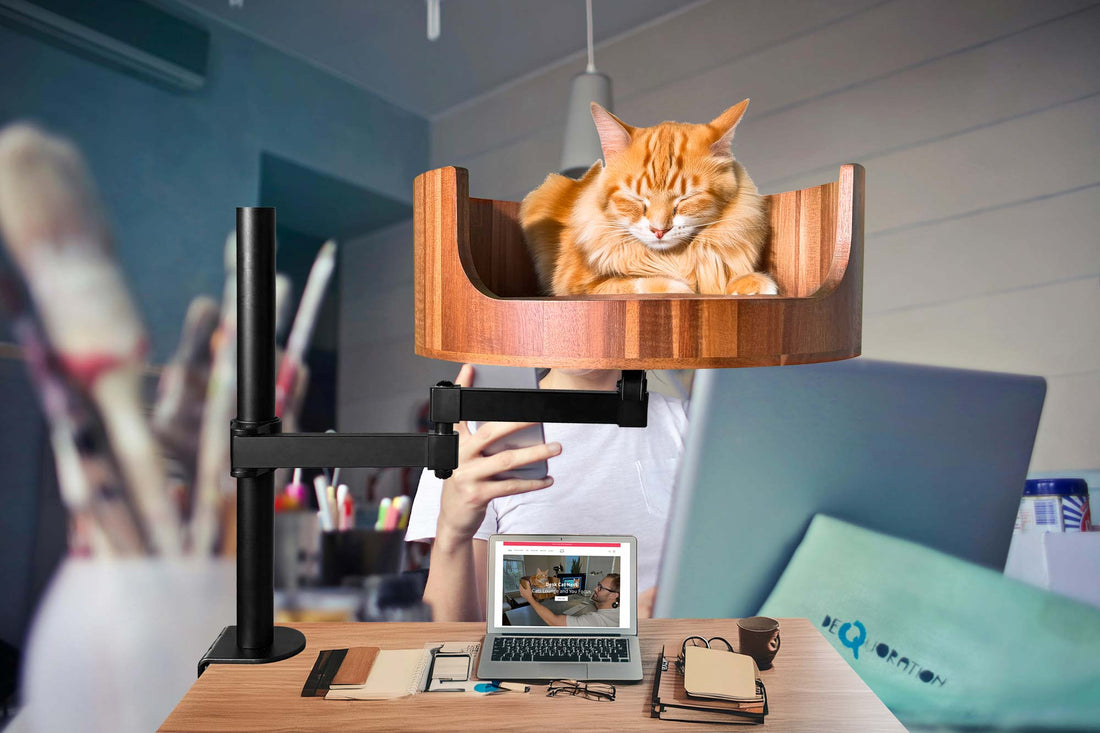
Elderly Cat Yowling: Understanding the Reasons Behind It
Share
As our feline companions age, their behaviors may change in unexpected ways. One common issue that older cats may experience is excessive yowling. This can be distressing for both the cat and its human companions, leading to feelings of frustration and confusion. In this article, we will explore the reasons behind elderly cat yowling and provide insight into how to address this behavior.
Elderly cat yowling can stem from a variety of factors, including cognitive decline, pain, loneliness, and medical issues such as hyperthyroidism or hypertension. Understanding the root cause of this behavior is crucial in order to provide the best possible care for our senior feline friends. By recognizing the signs of distress in elderly cats and addressing their needs effectively, we can help to enhance their quality of life and strengthen the bond between human and pet. Join us as we delve into the world of elderly cat yowling and gain a deeper understanding of the reasons behind this common behavior in aging felines.
1. Elderly cats may yowl due to medical issues such as arthritis or cognitive dysfunction.
2. Environmental changes, such as moving to a new home or changes in routine, can trigger yowling in elderly cats.
3. Providing comfort and a safe space for elderly cats can help alleviate yowling behavior.
4. Regular veterinary check-ups are essential to monitor and address any health issues contributing to yowling.
5. Understanding and addressing the underlying reasons for yowling in elderly cats can improve their quality of life and overall well-being.
Medical Reasons for Elderly Cat Yowling
As cats age, they may experience various health issues that can lead to yowling. Some common medical reasons for elderly cat yowling include cognitive dysfunction syndrome (similar to Alzheimer's in humans), hyperthyroidism, high blood pressure, and arthritis. These conditions can cause pain, discomfort, confusion, or anxiety in older cats, leading to vocalizations such as yowling. It is essential to consult a veterinarian if you notice increased yowling in your elderly cat to rule out any underlying medical issues.
Behavioral Reasons for Elderly Cat Yowling
In addition to medical reasons, elderly cats may yowl due to various behavioral issues. Cats are known to be creatures of habit, and any changes in their environment or routine can trigger vocalizations. For example, senior cats may yowl due to anxiety, stress, boredom, loneliness, or confusion. Changes in the household, such as the introduction of a new pet or family member, can also lead to increased yowling in elderly cats. Providing mental stimulation, interactive toys, comfortable resting spots, and a predictable routine can help alleviate behavioral reasons for yowling in elderly cats.
Environmental Factors Affecting Elderly Cat Yowling
Environmental factors play a significant role in the yowling behavior of elderly cats. As cats age, their senses may decline, making them more sensitive to changes in their surroundings. Loud noises, bright lights, extremes in temperature, or unfamiliar scents can trigger yowling in senior cats. Ensuring a calm, quiet, and comfortable environment for your elderly cat can help reduce yowling episodes. Creating a designated safe space, providing a cozy bed, and minimizing environmental stressors can improve your senior cat's quality of life and decrease excessive vocalizations.
Frequently Asked Questions
What causes elderly cats to yowl?
Elderly cats may yowl due to cognitive dysfunction, pain, changes in their environment, or medical conditions such as hyperthyroidism or kidney disease.
How can Desk Cat Nest help with elderly cat yowling?
Desk Cat Nest provides a cozy and secure space for your elderly cat to rest, relax, and feel safe, which can help reduce stress and anxiety that may be causing yowling.
Is Desk Cat Nest suitable for all elderly cats?
While Desk Cat Nest can be beneficial for many elderly cats, it may not be suitable for all cats. It is important to observe your cat's behavior and preferences to determine if Desk Cat Nest is the right solution for them.
How should I introduce Desk Cat Nest to my elderly cat?
Introduce Desk Cat Nest gradually by placing it in a quiet and comfortable area where your cat likes to rest. Encourage your cat to explore and use the nest at their own pace, using treats and toys to make it a positive experience.
Can Desk Cat Nest replace veterinary care for elderly cat yowling?
Desk Cat Nest is not a substitute for veterinary care. If your elderly cat is yowling excessively, it is important to consult with a veterinarian to rule out any underlying medical conditions and to address any pain or discomfort your cat may be experiencing.
In conclusion, the Desk Cat Bed is a valuable choice for addressing elderly cat yowling. With its comfortable and cozy design, it provides a safe and secure space for your senior feline to rest and relax. The elevated platform also helps to reduce joint pain and discomfort, while the enclosed design offers a sense of security and privacy. By providing a dedicated space for your elderly cat to rest, the Desk Cat Bed can help alleviate stress and anxiety, ultimately reducing excessive yowling behavior. Overall, investing in a Desk Cat Bed is a beneficial solution for both you and your beloved senior cat.



















































